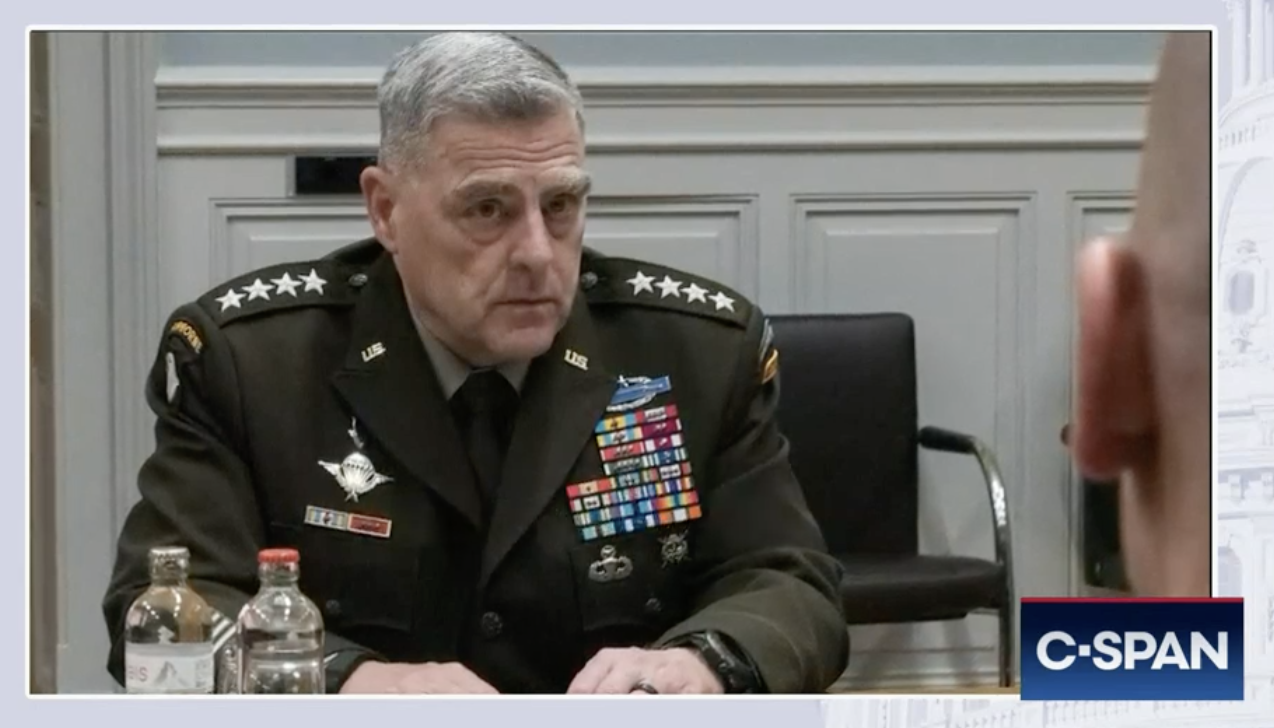Why Elon Musk Can’t Run DOGE [sic] Anymore
Yesterday, Judge Tanya Chutkan had a Presidents Day hearing on a lawsuit challenging DOGE’s actions. While she reportedly seemed inclined not to grant an emergency restraining order, she did order the government to provide her with two pieces of information: how many people had and were going to be fired, and what Elon Musk’s status is.
In a response and declaration, the government blew off the first question, but on the second, denied that Musk has the power of DOGE. He’s just a senior Trump advisor, one solidly within the White House Office, and so firewalled from the work of DOGE, yet still protected from any kind of nasty disclosure requirements.
But as the attached declaration of Joshua Fisher explains, Elon Musk “has no actual or formal authority to make government decisions himself”—including personnel decisions at individual agencies. Decl. ¶ 5. He is an employee of the White House Office (not USDS or the U.S. DOGE Service Temporary Organization); and he only has the ability to advise the President, or communicate the President’s directives, like other senior White House officials. Id. ¶¶ 3, 5. Moreover, Defendants are not aware of any source of legal authority granting USDS or the U.S. DOGE Service Temporary Organization the power to order personnel actions at any of the agencies listed above. Neither of the President’s Executive Orders regarding “DOGE” contemplate—much less furnish—such authority. See “Establishing and Implementing the President’s Department of Government Efficiency,” Exec. Order No. 14,158 (Jan. 20, 205); “Implementing the President’s ‘Department of Government Efficiency’ Workforce Optimization Initiative,” Exec. Order 14,210 (Feb. 11, 2025).
The statement is quite obviously an attempt to retcon the structure of DOGE [sic], one that Ryan Goodman has already found several pieces of evidence to debunk.
But it is a testament that the suit in question — by a bunch of Democratic Attorneys General, led by New Mexico [docket] — might meet significant success without the retconning of Elon’s role.
Partly for more general benefit, let me talk about the various kinds of lawsuits filed so far against Trump’s attacks.
Kinds of plaintiffs:
- Imminent, individual personal injury: The cases that have had the most success, so far, are examples of individuals who describe a specific imminent injury. The most obvious such example is a number of Trans women prisoners who’ve argued, successfully so far, that they face a very high likelihood of assault and/or rape if they are moved to male prisons.
- Unions or other representatives of federal workers: These lawsuits address the imminent injury of privacy violations or firing and other mistreatment. The most successful (and eye-popping) so far has been the American Foreign Service Association lawsuit challenging the USAID shutdown [docket], in which a Doe employee yesterday provided another horrifying declaration describing another instance of a pregnant woman being deprived of promised medevac, and another from a woman in South Africa running up debt taxpayers will have to pay and about to lose access to electricity on the compound. But there are limits to the recourse that unions can seek on both these theories. For example, while Trump appointed judge Carl Nichols imposed a temporary restraining order on actions targeted at employees oversees, he has not done so for the USAID personnel stuck without the ability to fix anything in DC, because being put on paid leave is not the same kind of injury as being stuck overseas with no access to security warnings.
- States (all with Democratic Attorneys General): The states are arguing a variety of things, both contractual breaches and injuries to their citizens. Contractual challenges may have little ability to halt ongoing destruction.
- Private entities, like corporations or associations: These entities are often arguing contractual breaches, or privacy damages. The latter are likely to have more success than the former because of the way the Privacy Act works.
Kinds of challenges:
- Many of these challenges claim a violation of the Administrative Procedures Act, basically arguing that the government changed the rules without going through the process they are required to use to change the rules.
- Many lawsuits also claim violations of the Privacy Act, which requires that the government follow certain rules if they’re accessing your data in new ways. Thus far, the government has argued that employees have more limited protections than private citizens.
- Underlying many of these suits are claims about the Impoundment Act and Separation of Powers because the government is not spending money the way Congress said it had to, but argued through an APA challenge. These challenges are particularly important because a key project of Project 2025 is to effectively strip Congress of the power of the purse.
- Some lawsuits have tried to get at cybersecurity violations or even hacking (Computer Fraud and Abuse Act) claims, but thus far with little success. In any case, those would pivot on how DOGE [sic] got access to various computer systems, and in most cases, a senior Agency official ultimately relented to give them access.
- This lawsuit, and another similar one brought by 26 anonymous USAID employees, argue that Elon Musk’s role in all this violates the Appointments Clause. This basically argues that Elon is acting as a superior officer, which requires Senate confirmation.
The injury suffered by each set of plaintiffs and legal theory largely limits the ability of judges to weigh in. So, for example, if a suit is arguing only Privacy Act violations, a judge can do no more than limit the dissemination outside of authorized channels of the data of the plaintiffs, something that has been ineffective once agencies started giving DOGE formal authorization to access computer servers. If a suit worries about firings, but the government instead puts tons of people on paid leave (as happened with USAID), then the plaintiffs are not yet suffering an irrevocable injury.
Here’s how the Appointments Clause theory, arguing that Elon is exercising powers that need to be created by Congress and confirmed by them, looks in the complaint.
64. Although he occupies a role President Trump—not Congress—created and even though the Senate has never voted to confirm him, Mr. Mr. Musk has and continues to assert the powers of an “Officer[] of the United States” under the Appointments Clause. Indeed, in many cases, he has exceeded the lawful authority of even a principal officer, or of the President himself.
65. As explained below, Mr. Musk: (1) has unprecedented and seemingly limitless access across the federal government and reports solely to President Trump, (2) has asserted significant and sweeping authority across a broad swath of federal agencies, and (3) has engaged in a constellation of powers and activities that have been historically associated with an officer of the United States, including powers over spending and disbursements, contracts, government property, regulations, and agency viability.
66. In sum, Mr. Musk purports to exercise and in fact asserts the significant authority of a principal officer on behalf of the United States. Yet, he does not occupy an office created by Congress and has not been nominated by the President or confirmed by the Senate. As a result, all of Mr. Musk’s actions are ultra vires and contrary to law.
You can see why the White House has decided that Elon is boxed away inside the White House with no direct control over the dismantling of government bureaucracy. The retconning of his role is all the more obvious when you understand that the right wing judges on SCOTUS feel very strongly about the Appointments Clause. And Trump is on the record relying on it, most spectacularly in convincing Aileen Cannon that Jack Smith had to be confirmed by the Senate before he could indict Trump.
In practice, Trump is saying Elon can dismantle entire agencies without Senate confirmation, but Jack Smith couldn’t prosecute him as a private citizen without it.
Or he was. Now he’s arguing that all this is happening without Elon’s personal direction.
There is plenty in the complaint already that debunks this, not least the narrative of how Elon started disappearing USAID even before, by his own description, Trump approved.
93. With a budget of over $40 billion, USAID accounts for more than half of all U.S. foreign assistance. USAID has missions in over 100 countries. As of January 2025, USAID had a workforce of over 10,000, with approximately two-thirds serving overseas.
94. On Saturday, February 1, 2025, a group of about eight DOGE personnel entered the USAID building and demanded access to every door and floor, despite only a few of them having the requisite security clearance.34 The areas to which they sought access included a sensitive compartmented information facility—commonly known as a SCIF—an ultra-secure room where officials and government contractors take extraordinary precautions to review highly classified information. DOGE personnel, aided by phone calls from Mr. Musk, had pressured USAID officials for days to access the secure facility and its contents.35
95. When USAID personnel attempted to block access to some areas, DOGE personnel, including Mr. Musk, threatened to call federal marshals. Under threat, the agency personnel acquiesced, and DOGE personnel were eventually given access to the secure spaces.
96. Later that day, top officials from USAID and the bulk of the staff in USAID’s Bureau for Legislative and Public Affairs were put on leave. Some of them were not notified but had their access to agency terminals suspended. USAID’s security official was also put on leave.36 97. Within hours, USAID’s website vanished. It remains inoperative.37
98. On Sunday, February 2, 2025, Mr. Musk tweeted, “USAID is a criminal organization. Time for it to die.”
38 Later, he tweeted, “We spent the weekend feeding USAID into the woodchipper.”39
99. Mr. Musk provided no support for his claim that USAID is a criminal organization. 100. On Monday, February 3, 2025, Mr. Musk stated that he was in the process of closing the agency, with President Trump’s blessing. Mr. Musk stated: “I went over it with him [President Trump] in detail, and he agreed that we should shut it down. And I actually checked with him a few times [and] said ‘are you sure?’ The answer was yes. And so we’re shutting it down.”40
Now, before DOJ gave this answer and blew off Judge Chutkan’s order to provide details of the ongoing firing spree, she seemed inclined not to grant a restraining order to stop all this.
It’s unclear whether this defiance will change that. Or, at the very least, whether it will lead to more questions about whether White House wrote any of this down.
What is clear is that the White House recognizes a real risk if Elon is held accountable for all the things Elon has done.




